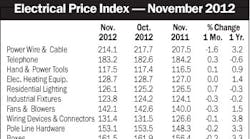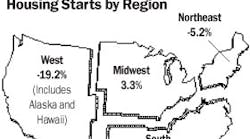Latest from Mag
Turtle & Hughes, Linden, N.J., has acquired Franklin & Smith Inc., West Paterson, N.J., another automation-oriented distributor.
Through the acquisition, Turtle & Hughes will expand its Allen-Bradley Area of Primary Responsibility (APR), continuing a trend of consolidation among Rockwell Automation/Allen-Bradley distributorships.
Turtle & Hughes, with seven locations, will be closing Franklin & Smith's only location and consolidating the operation into Turtle & Hughes' Whippany, N.J., branch.
Currently, Turtle & Hughes has Allen-Bradley's APR in Staten Island in New York, and Somerset, Middlesex, Morris, Union and Sussex counties in New Jersey. With the acquisition of Franklin & Smith, the company now gains the APR for Bergen, Passaic and Hudson counties in New Jersey.
Frank Millard, executive vice president of Turtle & Hughes, said he had already received Allen-Bradley's approval for the transfer of APR.
Millard said the two companies had Allen-Bradley APR for many counties that were adjacent to one another and that they had been competing in the same territory for as long as he could remember, longer than he and Franklin & Smith President Charles Smith had been alive, he guessed.
He added that the Franklin & Smith acquisition would give Turtle & Hughes some leverage in certain territory.
“We haven't had that strong a position in the northern counties of New Jersey, and this gives that to us. We view it as a very positive opportunity,” Millard said.
Franklin & Smith, which did around $10 million in sales last year, will retain its management personnel — including Charles Smith — and most of its sales staff, according to Millard. Randy Roessle, current Turtle & Hughes' branch manager at Whippany, will continue to be in charge of the consolidated operations.
Millard said the inventory will be split between the Whippany location and Turtle & Hughes' distribution center. He noted that for Franklin & Smith customers, this is an opportunity to gain from Turtle & Hughes' relative size in the marketplace.
“They're going to gain access to a lot more inventory than they had available,” Millard said.

